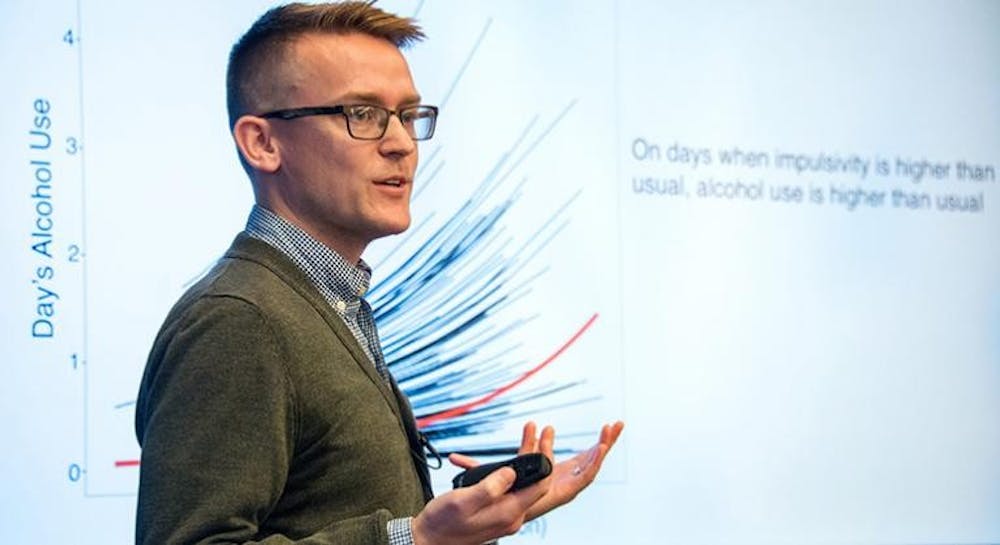This summer, the Annenberg School for Communication formed the Addiction, Health, and Adolescence (AHA!) Lab, which specializes in analyzing substance abuse, emotion regulation, and curiosity.
Led by Annenberg Assistant Professor David Lydon-Staley, the lab researches short-term dynamics of behavior, particularly in adolescents. According to the AHA! Lab's website, "the minutiae of everyday life, once tallied up over time, become the foundation for more enduring changes in our behavior, environment, and biology that occur on longer (e.g., years, decades) timescales."
The lab pursues various projects, centering around subjects that range from substance abuse to kinesiology. As opposed to isolated data collected from analyzing subjects in a laboratory setting, Lydon-Staley and his team explore how issues such as substance abuse or emotion regulation manifest in a normal environment.
“I want us to do science that we are passionate about, that contributes to broader conversations,” Lydon-Staley said. "We're almost more interested in asking questions than finding answers. The more you try to answer questions in science, the more questions you reveal.”
Lydon-Staley said that his experience as a postdoctoral scholar inspired him to create the AHA! Lab. While conducting a project analyzing Wikipedia user preferences, Lydon-Staley was introduced to the concepts of studying curiosity and observing subjects in a non-laboratory environment.
Apart from the focus on daily life, Lydon-Staley emphasizes themes of autonomy and curiosity, allowing his team members to explore any avenue that sparks their interest. He said that the freedom he enjoyed as a postdoctoral scholar increased his own motivation and excitement about research, leading him to create a similar environment in the AHA! Lab.
“If someone has an idea for that kind of study design that doesn’t have anything to do with substances, I am more than happy to go along with that,” Lydon-Staley said.
Amy McGowan, a postdoctoral researcher in the AHA! Lab, is currently conducting an experiment for the lab about activity levels in preschoolers. She said that Lydon-Staley encouraged her to pursue her idea for this kinesiological study, even though his primary interest is substance abuse.
RELATED:
Annenberg survey seeking evolutionary ratings of demographic groups sparks backlash, apology
Annenberg study reveals American civic knowledge is low, despite improvements
“I just off the cuff told him a brief idea and he's like, 'run with it'," McGowan said. "'Try and figure out how you can study that.”
For many of its studies, the AHA! Lab collects self-reports on mood and emotional regulation using smartphones. The use of this technology enabled the lab to continue conducting research during the COVID-19 pandemic without having to interact in-person with its test subjects.
McGowan said she is grateful that the lab has been able to continue working effectively throughout the pandemic.
“I think we're really lucky that we're not as impacted as other places,” McGowan said. “It’s kind of cool because we’re going to be able to look at these things during a pandemic.”
Graduate student Xinyi Wang recently completed a project for the lab in which they looked at gendered citation practices within the field of communications. Wang said it was exciting to consider the broader implications of the lab's work.
“We really hope to give back to the public and give back to the community,” Wang said.









